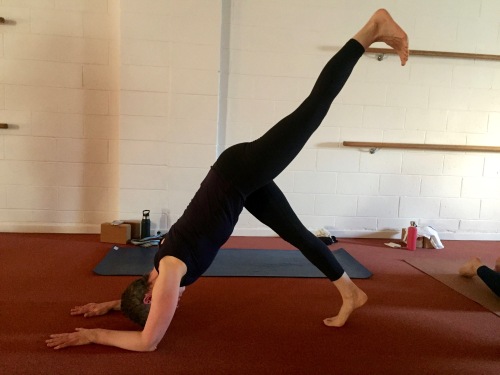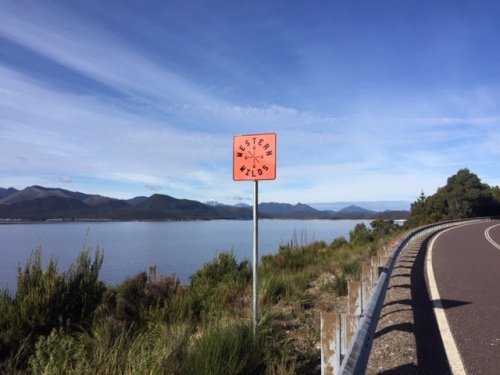pre-yoga

I’ve never done my 10-minute morning yoga practice and then wished I hadn’t done it. I always thank myself as I roll up my mat. And each time I do, I wonder why I had to mentally force myself to unroll my mat before starting.
I blame the clock in the bathroom. No matter how obediently I turn off bedside alarm, count up to 20 and push of the covers, by the time I brush my teeth in the bathroom across the hall, peaking out the window to see what kind of morning it is, the clock on the bath tells me that 20 minutes have passed since I woke up. How, I wonder, can that be? My alarm went off at 6.30am, as it always does. And yet the clock on the bath is telling me, seemingly three minutes later, that it’s 6.50am.
Despite my befuddled waking, I do a short yoga practice nearly every morning. I do it because my body needs it, and because my day goes better when I do. I think of it as pre-yoga. Now that my body is middle-aged, doing yoga in the morning isn’t optional. It’s basic maintenance. To the point that when I don’t do it, my body soon tells me. And it certainly isn’t ready for the kind of yoga that awaits me in the yoga classes that I attend twice a week.
Habits are hard to make and easy to lose. Luckily, I cemented my yoga habit a few years ago, well before my yoga teacher training. It was a habit that arose out of necessity. I didn’t mind that, every year, I was getting older. But I did mind feeling less nimble, less flexy. I minded feeling less Tigger-ish, less bouncy. Doing yoga helped hugely with this. It helped me to stand up straight and to look life in the eye – an especially good feeling to have once my kids’ grew taller than me and started looking down at me from above.
10 minutes of yoga each morning, with or without a mat, is enough for me to bend with straight legs when I’m gardening. I even enjoy bursts of housework when I can throw myself into it, knowing that it will soon be over. Often, I’ll pull on yoga leggings before gardening and housekeeping. Because wearing them lets me bend into corners and down into a squat, without stretching the knees of my trousers. Plus, they’re easy to launder.
But then along came yoga teacher training, and lots of things went out the window to make way for it. The gardening and housework still got done, sort of. I still bent from the waist and felt fairly agile. However, once the training started, four months ago, my 10 minutes of yoga first thing had to compete with a lengthening list of morning must-dos.
Over the final assessment weekend of teacher training, I attended 8 sessions led by fellow students, not including my own. We were all nervous. But somehow we overcame our nerves to teach a good class. When my turn came round, I’m not sure if I overcame my nerves, or just kept up with them. During that hour I felt slightly out of control and, well, weird. That said, the final weekend was a positive experience, at the end of which I felt relieved, glad and a bit sad.
The day after the course ended, I felt a twinge in my hip which I thought nothing of. Too many standing balances, I said to myself. Too many mornings spent sitting crosslegged outdoors in front of my computer, during my son’s home quarantine. None of these things did I consider a problem. The osteopath, who I saw a week later, disagreed. Frowning, he gave me a complicated term for the sore spot on the top of my thigh bone and told me to rest it.
Looking back, I realise that the quiet hysteria surrounding the completing of my yoga teacher training course – of getting into the studio every other weekend by 7.30am and remaining there until 5.30pm – meant skipping the morning yoga that makes my body strong enough to do challenging yoga poses. Instead I’d been freewheeling tricky poses – crane and lotus and handstands – that assume either youth or a strong core.
So now I am back at square one. I am a green yoga instructor with a small bursitis at the top of my right femur. It is healing. I am taking turmeric, vitamin C and omega oils. More importantly, I am doing my 10-minute pre-yoga practice most mornings. I now know a lot more about yoga, and understand myself a bit better. ‘This’, our yoga teacher was fond of telling us, ‘is the yoga’.

